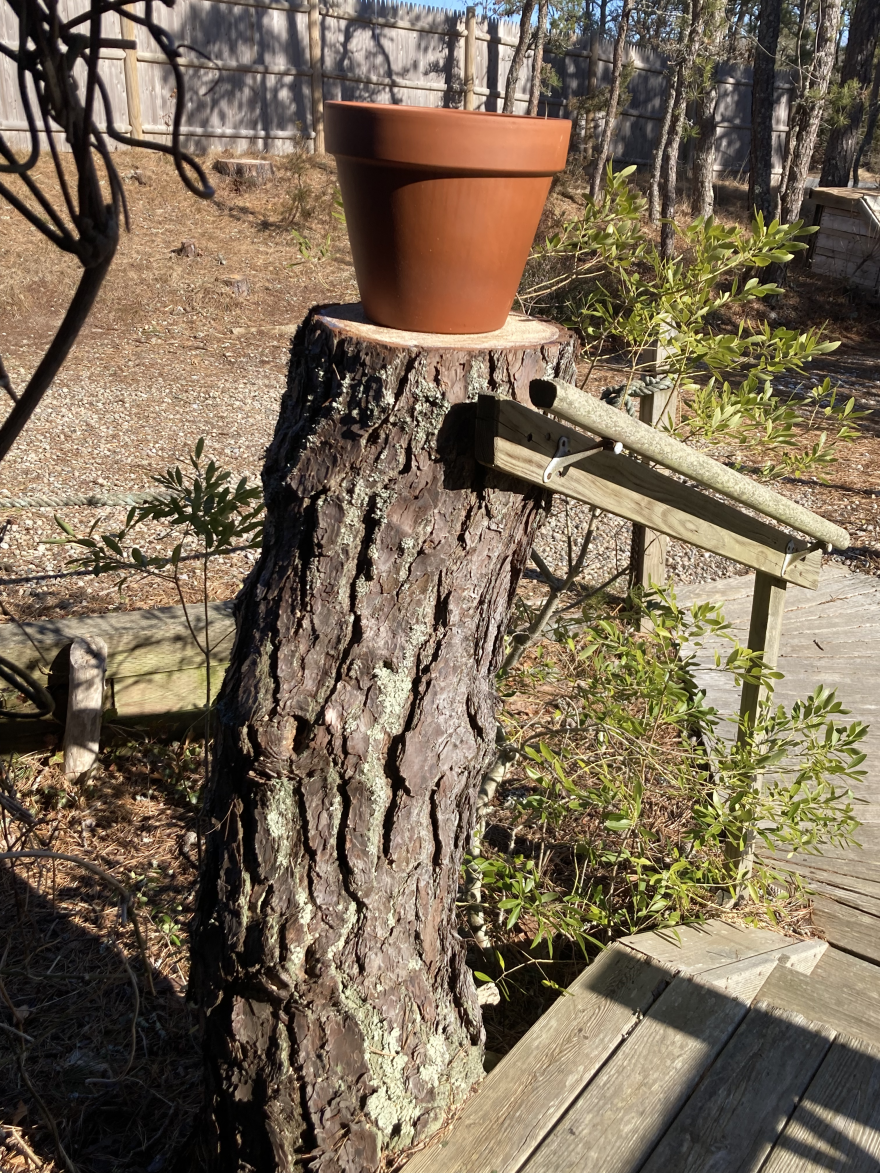Last December, I hired a local tree company to take down some pines on the north side of our house. On the face of it, cutting down trees doesn’t seem to be the thing to do in this era of climate change, since trees are excellent “carbon sinks,” storing vast amounts of carbon dioxide. But in fact, it was climate change that led me to take this step.
We’ve lived in our house for nearly three decades and not a single tree has blown down during storms. But more frequent and intense storms are predicted for the future due to global warming, and it now seems it is only a matter of time.
Joe and his crew of six men arrived at nine in the morning on the winter solstice, and in less than three hours they took down a dozen large pitch pines, 30-40 feet tall, I had not planned to stay and watch them, but I stood, fascinated by the complex coordination of their work.
It was like watching an intricate ballet where each member of the company had an assigned task – placing a ladder against each trunk, lopping limbs and branches, felling and cutting up the trunks, feeding the branches and tree sections into the wood chipper which pulverized them and blew the chips into a large truck, then raking and blowing the debris off the driveway and the street.
Though each man appeared to be acting separately, each was acutely aware of what the others were doing, acting in a pattern that had been carefully laid out beforehand for maximum safety and efficiency.
As the head if the crew, Joe exhibited a cheerfulness that seemed to permeate the other workers. It was hard physical work, but there was a sense of camaraderie among them, of taking satisfaction in a job well done, giving one another thumbs-up signs when a particularly difficult tree was successfully felled.
The largest and most problematic tree was one whose thick trunk was actually leaning into our front porch. This one was Joe’s to tackle. He rose up in the bucket of a bright-red cherry picker, cut off the top branches, and carefully tossed them down into the driveway. When the pine finally toppled, landing squarely on top of the pile of branches in the drive, Joe turned and, with a big grin on his face, pointed a thumbs- up sign directly at me. That gesture of recognition made me feel I had a small part in the performance, if only as a passive recorder.
After they left. I inspected the stump of the pine Joe had felled. It measured 18” in diameter and I counted fifty-seven rings for its age. There is a handrail to the porch attached to its trunk, so I asked Joe to cut the trunk above the rail. After he did so, I realized the stump would make a fine pedestal on which to place a flowerpot.
Three hours, twelve large trees, three trips to the transfer station to dump the wood chips, and a cleanup so thorough that the only sign that they had ever been here was some sawdust in the gravel driveway. It was a job well- done, and well worth it.
Oh, I had some regrets about cutting down so many trees. I still do. But when the ferocious windstorm that had swept across the country that week arrived on the Cape on Christmas Eve, I had no doubts that I had made the right decision.







